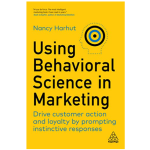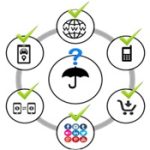
What insurance can learn from milkshakes?
While rereading his work “Competing Against Luck” and the brilliantly explained Jobs Theory, I could not resist drawing parallels between the insurance in emerging markets and why it is not sought after as much as other consumer products.

Less than 3% Vehicles are Insured in Pakistan

Claim is the ‘moment of truth’
Claim is the ‘moment of truth’ in insurance, and this cannot be articulated better than how Ammara Batool has described above during our recent conversation.

Using Behavioral Science in Marketing



A case for inclusive insurance
With changing dynamics around the world marked with the rise of FinTechs, payment and lending platforms and Covid-driven fast-tracked growth in awareness and usage of financial products and digital processes, the stage is set for insurance to be offered to the previously excluded segments of society. Taking Pakistan for example, although financial products have registered meaningful growth over the past few years, insurance, commonly regarded as the ugly duckling of financial products, still remains at the nascent stage with insurance premiums only 0.8 per cent of GDP. There is a solid case for players to invest in inclusive insurance and reach out to tens of millions of ‘financially included’ Pakistanis and not only provide them with a safety net but also create a viable insurance business worth billions of rupees of gross written premium.

The conundrum of reaching first-time buyers
Insurtech and digital insurance have become buzzwords these days and that is all for good reasons. But in the context of emerging and frontier markets, digital insurance has more to do with market-creating innovation than disruption which is normally the case with Western or developed markets with deeper insurance penetration.

A lot has been said about low insurance penetration in Pakistan and many professionals fear that it may further deteriorate in the face of rising inflation and ongoing economic challenges.Average Pakistanis, whose earnings are roughly $4 to $30 per day, are mostly excluded from insurance, even though they are often the primary target, especially of digital insurance. While struggling to put food on that table amidst historically high inflation rates, these people find it hard to spare money to purchase insurance products.

Several years ago, a colleague said that ‘no one wakes up in the morning to buy insurance’ in an attempt to explain the reasons for an ever-anaemic demand for insurance products. Over the years, this phrase has become popular among neo-insurers and those trying to change how insurance is traditionally viewed.
